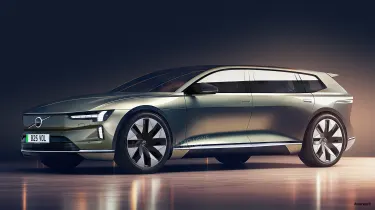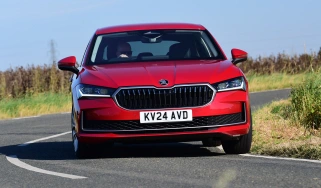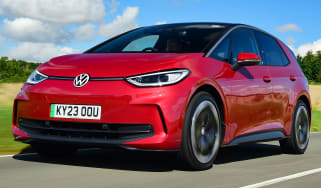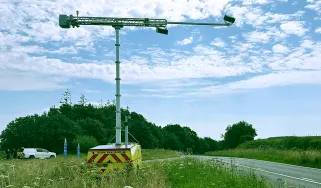Volvo still undecided on future electric estate

The future of a potential new Volvo estate car is hanging in the balance as the firm weighs up whether sales are strong enough to warrant an entry into the dwindling segment.
That’s what Nicole Shaw, Managing Director of Volvo UK, says, backing up the thoughts of the Swedish firm’s CEO, Jim Rowan. Volvo boosted hopes of an upcoming electric estate in 2022 when Auto Express uncovered trademarks for EV60 and EV90, which would likely be the names of all-electric replacements for the V60 and V90.
On the possibility of an electric estate, Shaw said, “it’s too early to say, because it’s only December; in another quarter, I might have more of a feeling on how it’s done. When it comes to anything we evolve, the electric space is the one we evolve into”.
Volvo is committed to launching a new model every year for the next five years. It initially aimed to make half of its sales EVs by 2025, and then move away from combustion power entirely by 2030, although this was recently amended to 90 per cent pure-EV sales by 2030. The company has already launched new bookends to its range, the flagship EX90 SUV and the baby EX30, along with the all-electric second-generation EX40 sitting between them. A battery-powered replacement for the XC60 called the EX60 is expected to expand the range further in 2026. The brand is also expected to spin a new electric saloon off the same SPA2 platform as the EX90, targeting customers in the United States and China.
Speaking to Auto Express at the reveal of the EX30 back in 2023, Volvo’s Chief Executive Officer Jim Rowan admitted that his team has to weigh up whether an electric successor to the V90 could make sense in terms of sales.
“Some of it is pretty easy, and then for some of it, you have to make choices. And I get so many emails asking me when somebody is going to do a proper electric wagon – mainly from people in northern Europe and Maine! But then you say, ‘What if we did that?’ and ask ‘What if we did a Cross Country version of it?’. Would that be something that would work in our portfolio? I’m not going to give an answer on that right now, but I will say that it’s something that it makes sense for us to be looking at.
“Can we do a really nicely designed and intelligent wagon? Yes, of course we can. The point really is whether we should do it – is there enough margin there, is there enough demand for that car? Are people really going to say, ‘Okay, I’d rather have a nicely designed wagon than choose a sedan [saloon] or an SUV’? Do we think the market is going to move back into that area? Because demand for estate cars and saloons has gone down in Europe. It’s a decision that we need to make, and we need to make it with the market intelligence that we have. We’re going to launch a new electric car every year for the next five years. Will an electric wagon be one of them? Watch this space.”
Electric Volvo estate exclusive image
Our exclusive image (above) shows how Volvo’s latest styling language from the EX90 and EX30 could transfer to a lower but more practical model – one that could almost certainly share a production site with the forthcoming electric saloon.
The company’s newly installed Global Head of Design, Jeremy Offer, said that advancements in battery installation technology – such as stitching the cells directly into the car’s structure, to make the floor thinner – may be required before an EV can mix current estate-car practicality with a low enough roofline.
But Offer added, “There’s always a balancing act with wagons, between maximising the amount of cabin space and optimising the aerodynamics. However, there’s no reason, if we wanted to create an estate, or a saloon, or whatever, why great design couldn’t make it sexy.”



